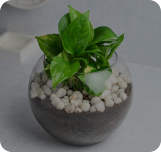Origin of Karwa Chauth Celebration
About Karwa Chauth
Karwa Chauth is one of the ancient festivals of India which is celebrated especially by Hindu women. It is celebrated on the fourth day after the full moon in the Hindu lunisolar calendar month of Kartika. The festival of Karwa Chauth is based on the lunisolar calendar that depends on the position of the moon which is then used to calculate the important dates of the festival. On Karwa Chauth, married women keep fast from sunrise to moonrise for the safety and longevity of their husbands. The Karwa Chauth fast is traditionally celebrated in the Northern states of India. This festival is mainly celebrated in Delhi, Haryana, Rajasthan, Punjab, Jammu and Kashmir, Uttar Pradesh, Madhya Pradesh, and Himachal Pradesh. Furthermore, Karwa Chauth is celebrated as Atla Tadde in the state of Andhra Pradesh.
Legends Associated With Karwa Chauth
There are various legends and tales associated with the festival of Karwa Chauth. Moreover, some tales are even interlinked to each other in which one acts as a frame story for another.
Tale Of Queen Veervati
It is said that there is a beautiful queen named Veervati who was the only sister of seven loving brothers. After her marriage, she spent her first Karwa Chauth as a married woman at her parents' house. She began a strict fast after sunrise. But, by the time of evening, she was desperately waiting for the moonrise as she was suffering from thirst as well as hunger. Her seven brothers couldn't bear to see their sister in such distress. So, they created a mirror in a pipal tree that made it look like a risen moon. Veervati mistook it for the moon and broke her fast.
During eating, the moment she took the first morsel of food, she sneezed. In her second morsel, she found hair. After the third morsel, she learned the news of her husband that the king was dead. The news about her husband made her heartbroken. Due to which she wept through the night until her shakti compelled a Goddess to appear in front of her. That goddess asked her about the reason for her crying. When the queen explained her distress, the Goddess revealed that she was tricked by her brothers. Furthermore, the goddess instructed her to repeat the Karwa Chauth fast with complete devotion. When queen Veervati repeated the fast, Yama was forced to restore her husband to life.
Legend Of Mahabharata
The traces of the celebration of Karwa Chauth can also be seen in the pre-Mahabharata times. According to that, once Arjun went to the Nilgiris for penance and the rest of the Pandavas were facing many problems in his absence. Out of desperation, Draupadi sought help from Lord Krishna. Lord Krishna told her that under similar circumstances Goddess Parvati had been advised to do the rituals and fast of Karwa Chauth. So, Draupadi followed the instructions and observed the fast with all its rituals. Thus, the Pandavas were able to overcome their problems.
The Legend Of Karwa
It is a legend about a woman named Karwa who was devoted to her husband. Her intense love and dedication towards his husband gave her spiritual power. When her husband was bathing in a river, he was caught by a crocodile. Then, Karwa bound the crocodile with cotton yarn and asked Yama to send the crocodile to hell. But, Yama refused to do it. Thereafter, Karwa threatened Yama to curse and destroy him. Afraid of being cursed by a devoted wife, Yama sent the crocodile to hell and blessed Karwa's husband with a long life. Thus, Karwa Chauth is celebrated with great faith and belief.
Tale Of Satyavan And Savitri
According to this tale, when Lord Yama came to take Satyavan's soul, Savitri begged him to grant him life. When he refused, she stopped eating and drinking and followed Yama who was carrying away her dead husband. Due to this, Yama told her to ask for any other boon except for the life of her husband. So, Savitri asked to be blessed with children and Yama agreed to it. But Savitri was a devoted wife who would never let any other man into her life except her husband. Thus, Yama was left with no other choice but to restore Savitri's husband to life.
Rituals Related To The Karwa Chauth Celebration
Women start preparing for Karwa Chauth a few days in advance. They buy shringar, jewelry, and puja items, such as the Karwa lamps, matthi, henna, and the decorated puja thali. In Uttar Pradesh, women eat soot feni with milk in sugar on the eve of the festival. It is said that this helps them go without water on the day of Karwa Chauth. On the day of the Karwa Chauth, women from Punjab awake just before sunrise to eat and drink. Furthermore, sargi is an important part of this pre-dawn meal and always includes fenia. It is a tradition that the sargi is to be sent or given to the fasting woman by her mother-in-law. Also, if both of them live together, then the pre-dawn meal is prepared by the mother-in-law.
On the occasion of Karwa Chauth, fasting women choose to wear Karwa Chauth special dresses like a traditional saree or lehenga. In some regions, women wear traditional dresses of their states. In the evening, fasting women sit in a circle with their puja thalis. Depending on region and community, a version of the story of Karwa Chauth is narrated, with regular pauses. In the pauses, the Karwa Chauth puja song is sung collectively and the fasting women pass their thalis around in the circle.
After the completion of this ritual, women await the rising of the moon. Once the moon is visible, fasting women view the moon or its reflection in a vessel filled with water through a strainer or through the cloth of a dupatta. Then, they offer water to the moon to secure its blessings. In some regions, the woman says a brief prayer asking for her husband's life. It is believed that at this stage, spiritually strengthened by her fast, the woman can successfully confront and defeat death. Thereafter, husbands take the water from the thali and offer it to their wives. Thus, taking the first sip of water during the day women break their fast and they can now have a complete meal.

















